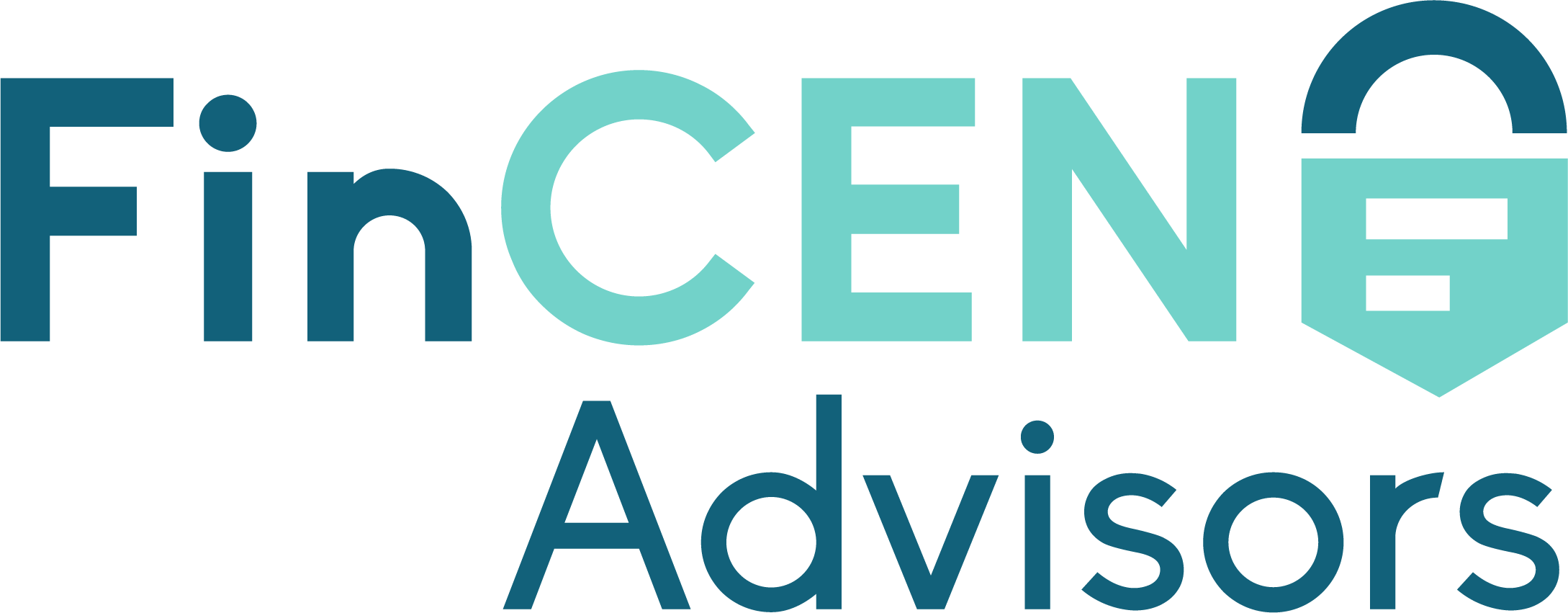The Corporate Transparency Act will require companies to report beneficial ownership in 2024. This guide covers everything you need to know about beneficial ownership reporting.
The Corporate Transparency Act (CTA), enacted in 2021, introduced new reporting requirements for many companies in the U.S. After significant events exposed loopholes that wealthy individuals were using to conduct tax fraud, money laundering, and other financial crimes, the government passed this law that requires beneficial ownership reporting. Those individuals/companies often created “shell” companies to conduct these crimes.
Reporting beneficial ownership information (BOI) ensures more transparency in business operations and helps prevent fraudulent activities that have fallen through the cracks when these key business details aren’t known. However, with new requirements comes more confusion, stress, and anxiety about fulfilling legal obligations correctly. Many businesses may scramble as 2024 approaches, which is when reporting begins.
This practical guide provides an overview of beneficial ownership, the new reporting requirements, and maintaining compliance. With these tips and step-by-step guidance, companies can better understand how to comply with legislation, avoid penalties, and stay efficient.
What is beneficial ownership?
The Financial Crimes Enforcement Network (FinCEN) established requirements for beneficial ownership reporting under the CTA beginning Jan. 1, 2024. Companies that are required to report information about their beneficial owners are known as “reporting companies.”
So, who is considered a beneficial owner? FinCEN defines a beneficial owner as someone who either directly or indirectly:
- Exercises substantial control over the company, or
- Owns or controls 25% or more of the company’s interests.
There are a few ways a person is considered to have “substantial control” over a company:
- They are a senior officer
- They have the authority to appoint or remove officers or directors
- They are essential decision-makers for the business
The guidelines also include a “catch-all” category that allows for other unique ways someone exercises control.
Reporting companies must include information only for current beneficial owners at the time of filing, not historical owners. Any changes to ownership need to be reported via updated reports moving forward.
Reporting requirements for beneficial owners
Beneficial ownership reporting requirements don’t begin until 2024. The reporting system is not yet live, so reporting companies need to continue to check the FinCEN website for updates in the new year to get started.
Here’s what you need to know about general reporting requirements:
1. Reporting companies
Reporting companies are corporations, limited liability companies (LLCs), and others that must send legal documents to the secretary of state or a similar government office. BOI must be submitted for these reporting companies within the established deadlines.
2. Exempt companies
Not all organizations are required to submit BOI to FinCEN. There are 23 exemption types, including government authorities, banks and credit unions, other financial services providers, insurance companies, tax-exempt entities, inactive businesses, and others. A full list is available in FinCEN’s online beneficial ownership guidance.
3. Beneficial owner details
BOI that must be included when filing with FinCEN is as follows:
- Name
- Birth date
- Address
- ID number from a driver’s license, passport, or other type of ID
- An image of the ID used
Leaving out or providing inaccurate information could lead to penalties, so companies must be strict when reporting.
4. Types of acceptable ID
The ID number and image used must be one of FinCEN’s acceptable forms of identification, which include these options:
- A U.S. driver’s license
- An ID issued by a U.S. state or local government or Indian Tribe
- A U.S. passport
- A foreign passport is when the person does not have any of the other acceptable ID types
Whatever ID is used cannot be expired and must be current.
5. Company applicant information
For reporting companies created on or after Jan. 1, 2024, information is also required from someone called a “company applicant.” Company applicants include the person who directly files the company registration document or an additional individual responsible for the direction of such filing. The same information required for beneficial owners, as listed above, must also be reported for company applicants for reporting companies.
6. Reporting deadlines
Businesses must follow a set period when filing BOI. Here are details to know about reporting timelines:
- Companies created or registered before Jan. 1, 2024, have one year to file the initial BOI report.
- Companies created or registered on or after Jan. 1, 2024, and before Jan. 1, 2025, have 90 days from the date they receive notice of their creation or registration to file their initial report.
- Companies created or registered on or after Jan. 1, 2025, will have 30 days from the date they receive notice of their creation or registration to file their initial report.
Filing BOI to FinCEN requires no fee, and companies will complete the process electronically through the FinCEN system when it becomes available in 2024. Submitting information promptly will ensure deadlines aren’t missed and that the company stays compliant with the CTA.
A step-by-step guide to reporting
The process may still not seem completely clear, especially because reporting BOI to FinCEN is a new process. It can be a challenge for businesses to fully understand what’s expected and how to follow new regulations.
This step-by-step guide walks through exactly what you should do to prepare.
1. Determine whether you are a reporting company
Not all businesses need to report their beneficial owners to FinCEN. Companies like banks, nonprofits, and insurance companies don’t have to report this information. This is mainly because organizations like financial institutions are already subject to more intensive reporting requirements.
However, if you’re not exempt and you are a corporation, LLC, or other company that registers with the secretary of state’s office, you are likely a reporting company.
2. Gather BOI
You will need all applicable owner information to report to the government. Ensure you understand which individuals are beneficial company owners and obtain their names, dates of birth, addresses, and identification information. Incomplete or inaccurate information could lead to penalties, so ensure details are current and complete.
3. Follow filing deadlines
Make sure you follow all deadlines to avoid penalties and fees further. You have a year to file if your business was created before Jan. 1, 2024. Reporting companies established in 2024 will have 90 days for their initial filing. Those created on or after Jan. 1, 2025, will have 30 days.
4. Use the FinCEN system to file
Beneficial ownership information will be provided electronically to FinCEN through their system. The online platform will be available for businesses to access beginning in 2024, and FinCEN will also post the reporting form online in 2024.
FinCEN guidance states that a reporting company can authorize anyone to file on its behalf, such as a company employer, owner, or third-party service provider. This person just needs to provide their essential contact information, including name, email address, or phone number.
Please pay attention to any updates FinCEN provides on its BOI website page. The filing process should be straightforward so reporting companies can comply with guidelines and submit their reports quickly.
5. Maintain compliance when updates are needed
Fortunately, reporting companies don’t have to continue filing BOI annually. They have to submit the initial filing with accurate details. However, moving forward, it’s up to the company to stay compliant by updating owner information as it changes.
If the BOI changes, such as by hiring a new CEO, the reporting company must file an updated report within 30 days of the change occurring. The same applies to a shift in any previously reported BOI.
Changes that will require an updated report include these examples:
- The reporting company registers a new business name
- Beneficial ownership changes
- A beneficial owner’s name, address, or ID number changes
A new report isn’t required if a beneficial owner changes the type of ownership interest they have in the reporting company.
If an inaccuracy is discovered in the original filing, the reporting company has 30 days to correct it after someone becomes aware of the mistake.
6. Be aware of potential penalties
The CTA outlines that violations of the beneficial ownership requirements could involve civil penalties of up to $500 for each day the violation continues or criminal penalties of up to two years imprisonment and a fine of up to $10,000. These penalties may happen if it is found that the company willfully failed to file its BOI report, filed false information, or was unable to update or correct reported information.
These potential penalties are significant, so businesses need to understand and follow all filing deadlines. However, because this is a new requirement, FinCEN is allowing mistakes or omissions to be corrected within 90 days of the original report deadline without being penalized.
6. Stay updated with trends and laws
It’s crucial to continue to follow changes to tax and business laws. They’re altered constantly, and it’s up to qualifying companies to understand new legislation, how it impacts them, and the steps they must take to stay compliant. Monitor the CTA, in particular, for changes.
In addition, one crucial area to prioritize is recordkeeping. With adequate, regularly reviewed, and updated records, reporting companies are likelier to avoid reporting inaccurate information that could lead to fines and legal trouble.
Navigating reporting challenges
Even the most organized companies still face challenges when new reporting requirements are initiated. There can be a lot of confusion about deadlines, expectations, and rules. Small businesses may especially have difficulty reporting because of limited staff and resources. Unfortunately, making a mistake or failing to file on time can lead to steep and significant consequences.
To manage and mitigate these common issues, reporting companies can take a few different steps:
- Create a dedicated workflow for beneficial ownership reporting processes
- Discuss an updated compliance strategy across the business
- Stay organized for future reporting and audits
- Follow governmental updates
- Work with a FinCEN expert who understands all the legal implications
Reporting and compliance don’t have to be overwhelming or stressful parts of your business. By understanding the reasoning behind the legislation, following new business owner reporting requirements, and creating intentional practices to stay compliant, company leaders can continue operating without any hiccups related to these new regulations.
Following new beneficial ownership reporting requirements
Thorough and accurate reporting is key to following all the new FinCEN requirements moving forward. Knowing all the deadlines, timelines, definitions, and details required ensures reporting companies fulfill their obligations and continue to stay efficient and organized.
Governmental websites always post updates to help businesses navigate these changes. FinCEN has prepared an FAQ document on BOI reporting for further assistance.
Review business law changes that will impact your operations regularly, and work with leadership to ensure smooth transitions into new policies and procedures. Staying compliant must be a top priority to avoid penalties and fines.
Often, the best approach is to work with an expert. The team at FinCEN Advisors is here to help you comply with CTA guidelines.
Contact FinCEN Advisors today to get started with FinCEN compliance for 2024.









